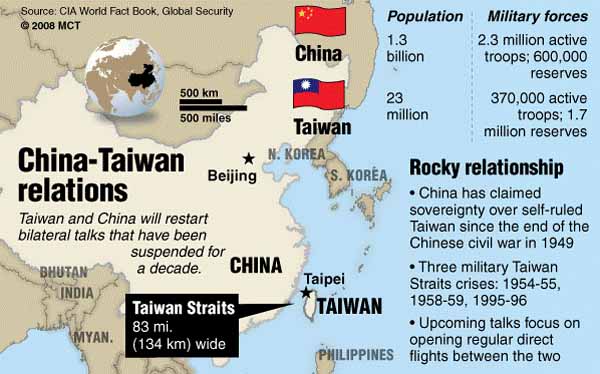Various useful foreign affairs updates for you
Foreign affairs updates - 26th Nov 2021
- IOC finds Peng Shuai inconvenient: A series of crude propaganda efforts centered on the Chinese tennis player Peng Shuai, who accused former Chinese Communist Party (CCP) senior leader Zhang Gaoli of sexual assault in a short-lived post on Weibo a few weeks ago, has drawn global attention to her case. Peng disappeared after her original statement, made more than two weeks ago, was deleted by censors within 30 minutes but in that time had already spread widely on the Chinese internet. Last week, the Women’s Tennis Association (WTA) issued a public statement, backed by prominent tennis players, about her case. Peng told the International Olympic Committee (IOC) that she was “safe”—on a call with Chinese tennis officials also on the line. A clear split has emerged between the WTA, which is still pushing for Peng to be able to speak freely, and the IOC, which seems determined to sweep the whole affair under the carpet and ensure a smooth launch for the Beijing Winter Olympics in February. Human Rights Watch and other groups have accused the IOC of becoming a vehicle for Chinese propaganda. The IOC has worked closely with Chinese officials, including Zhang Gaoli himself, and has a long history of intimate ties to authoritarian regimes, especially when it comes to forced displacement and the silencing of activists. The relationship goes both ways: Beijing spent years, for instance, cultivating the Olympics fixer and powerful businessman Mario Vázquez Raña in the run-up to the 2008 Summer Olympics.
- Taiwan tantrums: While the mood around Taiwan has calmed slightly in recent months, Chinese officials and media continue a hysterical chorus around the island and its politicians. The latest is a stream of articles and threats following U.S. President Joe Biden’s invitation for Taiwan to his Summit for Democracy next month. The United States carefully issued a “participant list” that didn’t explicitly endorse Taiwan’s statehood—only to have Chinese journalists describe it as listed as a country anyway. An incidental victim has been Lithuania, currently a subject of rhetorical fury for upgrading the status of Taiwan’s de facto embassy there.
- Quantum computing sanctions: The Joe Biden administration has blacklisted another dozen Chinese firms for their ties to the military, specifically over quantum computing efforts. Quantum computing is a radical field that could produce machines far faster than conventional computers and capable of solving some previously unsolvable problems, as well as shaking up existing cryptography. China has invested heavily in the field, although the benefits are all largely theoretical at this point, since current quantum computers are very tiny and their utility highly disputed. Such blacklists are a regular feature of the U.S.-China relationship, although they became more regularly used under former President Donald Trump. I’m told by insiders that the Biden administration has been sitting on these and other possible sanctions for a while, but it held off until after COP26 and the summit between Biden and Chinese President Xi Jinping.
- China blocks shipping data: China has thrown another wrench into the already clogged machinery of global commerce. Chinese firms are refusing to provide the data they usually supply through automatic identification systems (standard trackers that every ship is fitted with). The number of reports from China has dropped by 90 percent in the last three weeks. This seems to be an attempt to comply with China’s data law, which came into force on Nov. 1 and prevents information from being sent to foreign services unless the Chinese government gives permission—but it’s making it even harder to keep track of where ships, and goods, are. It may be that this is a temporary hiccup and that the authorities will let firms send the information, a critical part of the global shipping system, again. But paranoia about data security has recently heightened inside China.
- India-US Trade Policy Forum: India and the United States (US) are set to revive the Trade Policy Forum (TPF) now, after four years, in an attempt to bolster trade and investment flows between the two nations. US Trade Representative Katherine Tai has said she hoped to make progress in areas such as movements of goods and services between the two countries, and ironing out market access restrictions and high tariffs, and these would be taken up on priority with India. Established in 2005, the India-US TPF met last in October 2017. It was then replaced by negotiations between the two sides on a trade deal. With the Biden administration now insisting on resolving irritants first rather than going for a mini deal, the focus on the TPF has again emerged.
- EXAM QUESTIONS: (1) What are the issues coming in the way of a smoother trade relationship between India and the US? (2) Why is China generally hysterical about sharing data with the outside world? Explain. (3) What are the ways global supply chains can be declogged in coming months?
* Content sourced from free internet sources (publications, PIB site, international sites, etc.). Take your own subscriptions. Copyrights acknowledged.














